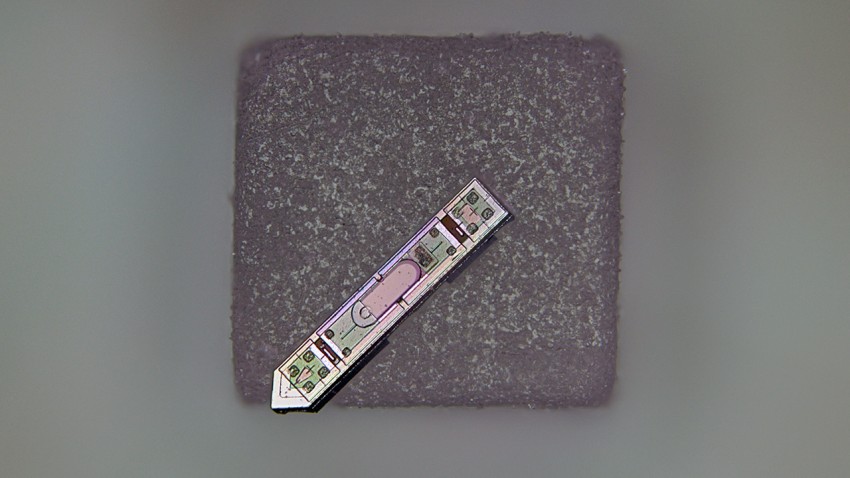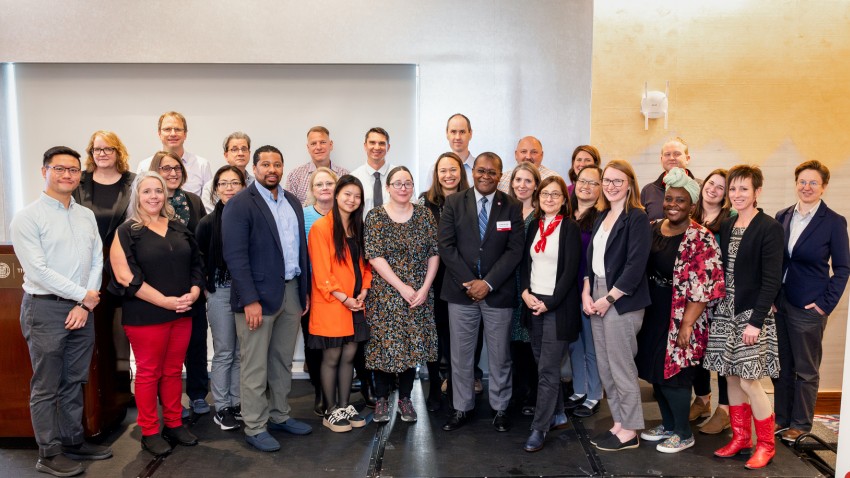
- Graduate Field Affiliations
- Biochemistry, Molecular and Cell Biology
- Biomedical Engineering
- Biomedical and Biological Sciences
- Genetics, Genomics, and Development
- Stem Cell Biology (minor)
Biography
Jan Lammerding is a Professor in the Meinig School of Biomedical Engineering and a member of the Weill Institute for Cell and Molecular Biology at Cornell University. He earned a Diplom-Ingenieur (Dipl.-Ing.) degree in Mechanical Engineering from RWTH Aachen in his native Germany and a Bachelor of Engineering (B.E.) degree from the Thayer School of Engineering at Dartmouth College. He then completed his Ph.D. in Biological Engineering at the Massachusetts Institute of Technology (MIT), where he studied subcellular biomechanics and mechanotransduction signaling with Drs. Roger Kamm (MIT) and Richard T. Lee (Brigham and Women’s Hospital/Harvard Medical School). Following a brief postdoctoral fellowship in Dr. Lee’s laboratory, he began his faculty career at Harvard Medical School and Brigham and Women’s Hospital and concurrently taught in the Department of Biological Engineering at MIT before joining Cornell University in 2011.
Research in the Lammerding laboratory focuses on developing novel technologies to investigate the interplay between cellular mechanics and function, with a particular emphasis on the cell nucleus and its response to mechanical forces. Dr. Lammerding is a pioneer and internationally recognized leader in the field of nuclear mechanobiology. He has made numerous contributions, including highlighting the importance of the nuclear envelope in determining the mechanical behavior of the cell nucleus, elucidating how the nucleus participates in transducing mechanical stimuli into biochemical signals (“nuclear mechanotransduction”), and defining the role of nuclear mechanobiology in human diseases. The Lammerding laboratory aims to (1) determine the molecular mechanisms responsible for muscular dystrophies, cardiomyopathies, and other diseases linked to defects in nuclear mechanobiology; (2) identify and assess novel therapeutic strategies targeting these mechanisms; and (3) gain a deeper understanding of the fundamental principles by which cellular biomechanics modulate biological functions and vice versa. Toward this goal, the Lammerding group uses an interdisciplinary research approach that combines engineering principles, microfabrication, advanced imaging, bioinformatics, and cutting-edge cell and molecular biology techniques, applied from the molecular to the organismal level.
The Lammerding laboratory is supported by grants from the National Institutes of Health, the National Science Foundation, the Leducq Foundation, the Volkswagen Foundation, and private donations. More information is available at the Lammerding Lab website.
Research Interests
- Bioengineering
- Biomechanics and mechanobiology
- Biomedical engineering
- Cancer research
- Mechanics of biological materials
- Microfluidics and microsystems
- Molecular and cellular engineering
- Molecular biotechnology
- Muscular dystrophy and heart disease
- Nanobio applications
Select Publications
-
Amiad Pavlov D*, Heffler J*, Suay-Corredera C, Dehghany M, Shen KM, Zuela-Sopilniak N, Randell R, Uchida K, Jain R, Shenoy V, Lammerding J#, Prosser B#. Microtubule forces drive nuclear damage in LMNA cardiomyopathy. Nature Cardiovascular Research. 2025. 4(11): 1501-1520.
-
Morival J, Hazelwood A, Lammerding J. Feeling the force from within – new tools and insights into nuclear mechanotransduction. J Cell Sci. 2025. 138(5): JCS263615
-
Bell ES, Shah P, Zuela-Sopilniak N, Kim D, Varlet AA, Morival LP, McGregor AL, Isermann P, Davidson PM, Elacqua JJ, Lakins JN, Vahdat L, Weaver WM, Smolka MB, Span PN, Lammerding J. Low lamin A levels enhance confined cell migration and metastatic capacity in breast cancer. Oncogene. 2022. 41(36): 4211-4230
-
Earle AJ, Kirby TJ, Fedorchak GR, Isermann P, Patel J, Iruvanti S, Moore SA, Bonne G, Wallrath LL, Lammerding J. Mutant lamins cause nuclear envelope rupture and DNA damage in skeletal muscle cells. Nature Materials. 2020. 19: 464-473
-
Denais CM, Gilbert RM, Isermann P, McGregor AL, te Lindert M, Weigelin B, Davidson PM, Friedl P, Wolf K, Lammerding J. Nuclear envelope rupture and repair during cancer cell migration. Science. 2016. 352(6283): 353-358
Select Awards and Honors
- Elected Fellow, American Society for Cell Biology (ASCB) 2022
- Elected Fellow, Biomedical Engineering Society (BMES) 2022
- Elected Fellow, American Institute for Medical and Biological Engineering (AIMBE) 2022
- Keith R. Porter Fellow Award for exceptional contributions to cell biology, Porter Endowment for Cell Biology/American Society for Cell Biology 2019
- Cornell Graduate and Professional Student Assembly's Faculty Teaching, Advising, and Mentorship Award 2019
Education
- B.E., Biomechanical engineering and computational modeling, Thayer School of Engineering, Dartmouth College 1997
- Dipl. Ing., Mechanical, thermal, and biomedical engineering, RWTH Aachen University 1999
- Ph.D., Biological engineering, Massachusetts Institute of Technology 2004
- Postdoc, Cell & Molecular Biology, Cardiovascular Mechanobiology and Mechanotransduction), Department of Medicine, Cardiovascular Division, Brigham and Women’s Hospital/Harvard Medical School 2004-2005



